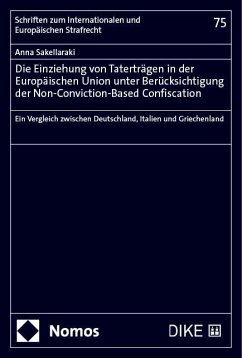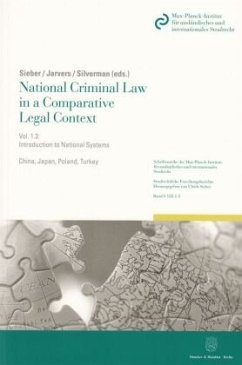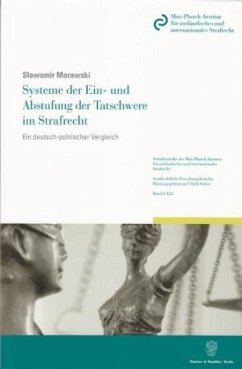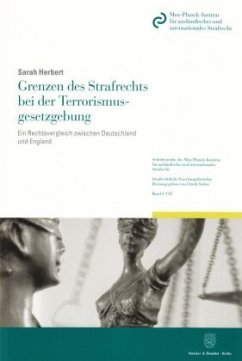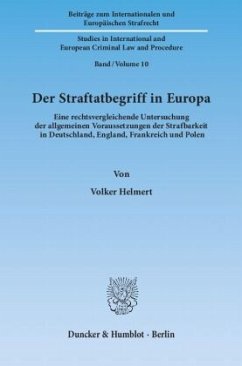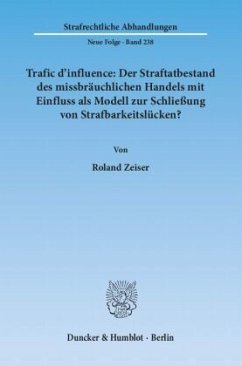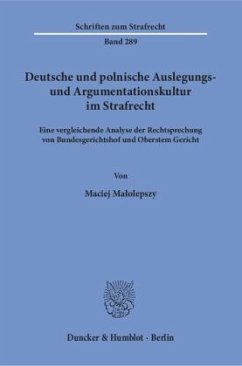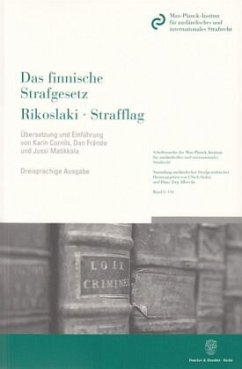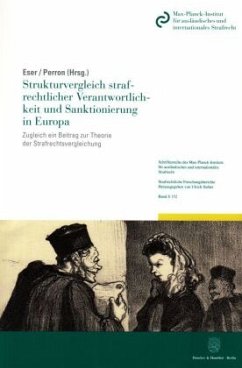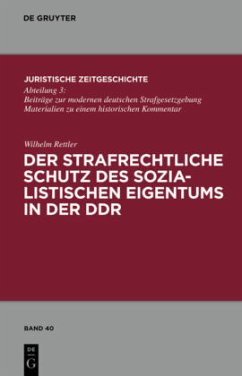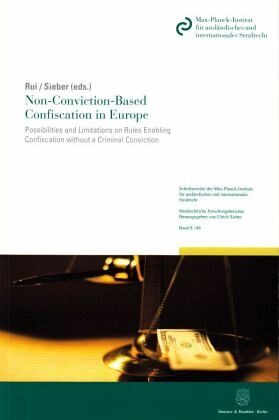
Non-Conviction-Based Confiscation in Europe
Possibilities and Limitations on Rules Enabling Confiscation without a Criminal Conviction
Herausgegeben: Sieber, Ulrich; Rui, Jon Petter
Versandkostenfrei!
Versandfertig in 6-10 Tagen
40,00 €
inkl. MwSt.

PAYBACK Punkte
0 °P sammeln!
The principle of justice, the effective prevention of crime, and the rule of law demand that crime should not pay: it cannot be accepted that a person who has gained wealth through crime is allowed to enjoy the fruits of his criminal activities.During the last four decades, significant efforts have been made, both on the international and national levels, to develop fair and efficient rules enabling the authorities to forfeit assets derived from crime. However, the vast majority of legal systems throughout Europe have not succeeded in upholding this important aspect of the rule of law. The Eur...
The principle of justice, the effective prevention of crime, and the rule of law demand that crime should not pay: it cannot be accepted that a person who has gained wealth through crime is allowed to enjoy the fruits of his criminal activities.During the last four decades, significant efforts have been made, both on the international and national levels, to develop fair and efficient rules enabling the authorities to forfeit assets derived from crime. However, the vast majority of legal systems throughout Europe have not succeeded in upholding this important aspect of the rule of law. The European Commission held in 2012 that »confiscation of criminal assets remains underdeveloped and underutilized« in the EU Member States, and that »there is a significant underutilisation of asset confiscation laws throughout the EU«. The main reason why confiscation legislation has proven inefficient lies in the many difficulties in reaching a criminal conviction of the offender. In order to remedy this situation, new strategies are emerging. One of the most radical but at the same time efficient legal tools that has been developed to overcome the »criminal conviction problem« is the introduction of rules enabling confiscation without a former criminal conviction: Non-Conviction-Based Confiscation (NCBC).The purpose of this book is to get the reader acquainted with different NCBC legislation models, to analyze the diverse structural issues and human rights issues that NCBC legislation raises in a European context, and to discuss and carve out some guidelines for legislating NCBC. This book is essential reading for policy makers, practitioners, and academics throughout Europe who believe that crime should not pay.
Dieser Artikel kann nur an eine deutsche Lieferadresse ausgeliefert werden.



